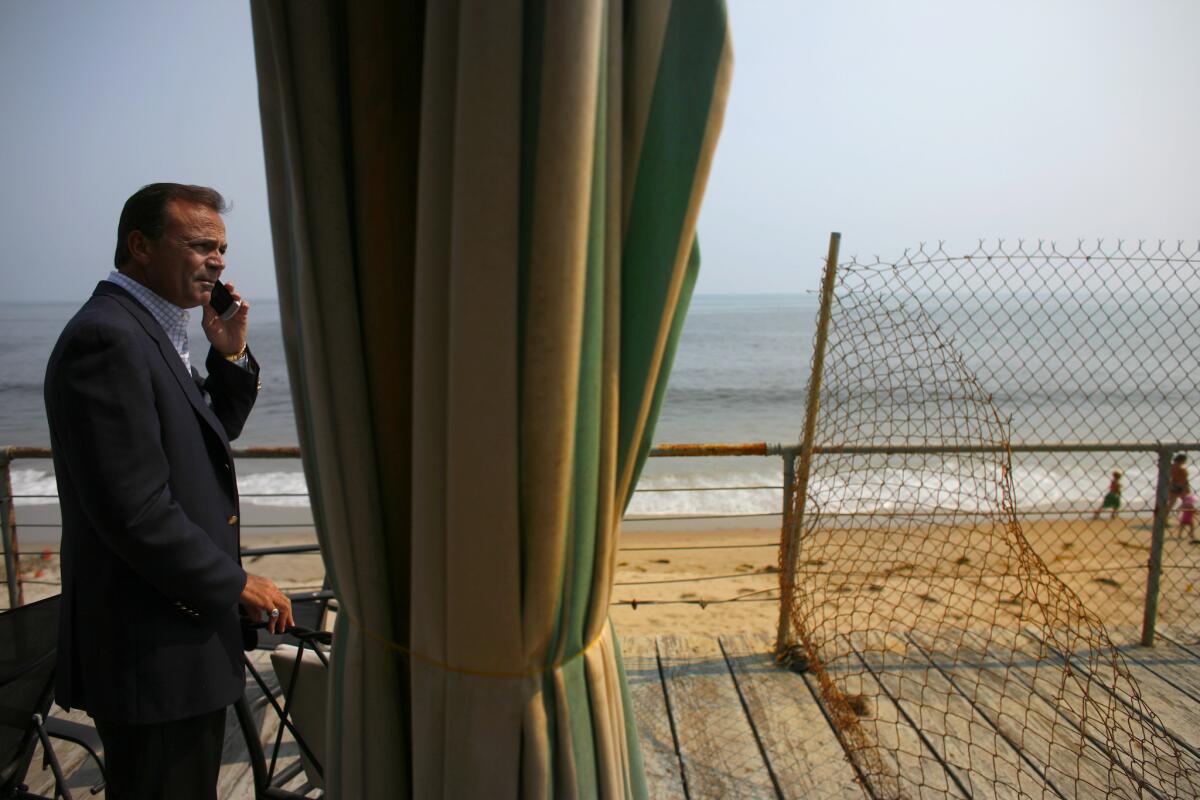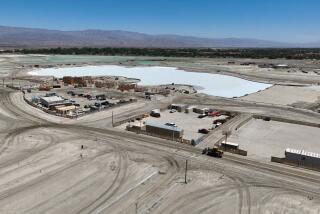Rick Caruso unveils plans for long-vacant Montecito beach property

A prominent Los Angeles developer released plans Thursday for a storied Santa Barbara County beachfront property that were revised after years of negotiation with county officials and community members.
Caruso Affiliated, a major real estate development firm led by billionaire Rick Caruso, unveiled plans for the land once occupied by the Miramar Beach Hotel in Montecito, 100 miles north of Los Angeles.
If approved by county planners, the Miramar Beach Resort and Bungalows will feature 170 rooms, a beachfront restaurant, public beach access and a private club -- all stretching over 15 acres of waterfront property. The developer said he hopes to open the resort in 2017.
The new development plans are the second revision for Caruso, following a 2011 round of changes, said Matt Middlebrook, the company’s executive vice-president for development. The envisioned hotel is scaled back compared with previous proposals.
“This plan is less impactful and really consistent with the feel of the community,” he said. “We’ve been in the community already in the last week and we’ve gotten a lot of positive feedback.”
The hotel has been a centerpiece of Montecito, a small unincorporated beach community in Santa Barbara County, for more than 100 years.
Founded in the 1880s, the Miramar Beach Hotel was one of the first resorts on the California coast. The longtime owners sold it in the late 1990s to New York developer Ian Schrager, but plans for a large-scale renovation foundered. It has sat vacant since 2000. Beanie Babies founder Ty Warner bought the property from Schrager in 2005, then sold to Caruso in 2007.
The property represented generations of history to the small town, said Trish Davis, who assists with historical preservation advocacy for the Montecito Assn., a nonprofit community group.
“Even though the Miramar was not a historic landmark, it was a landmark in the community,” she said. “So many people grew up there. When it closed, it just didn’t close the business. People whose families had gone there and people whose families had worked there for years were so dedicated to it.”
It remained an attractive investment, however. Located in a scenic town with celebrity residents, the hotel property is also one of the few on the California coast that includes the beachfront.
The Caruso company, which also owns the Grove shopping center in Los Angeles among other properties, received planning approval for the Miramar resort from the county in 2008. With the economic downturn and a softening in the hotel industry, the firm halted the plans and held onto the land.
“By the time we had it approved, the market to build a new ground-up resort hotel was nonexistent,” Middlebrook said.
After years of disuse, Caruso demolished the original hotel buildings last year. The company had hoped to tear down and rebuild at the same time, but deliberations over a hotel tax rebate program with the county delayed the construction process. Ultimately, the company decided not to take part in the rebate program.
The company’s revisions will go before the area’s board of architectural review, followed by approval from planning commissioners, Middlebrook said. He said the goal is to have the project approved and built by summer 2017.
Caruso’s new plans demonstrate that the company is eager to move forward, said Santa Barbara County Supervisor Salud Carbajal, who represents Montecito.
“I’m very encouraged by Mr. Caruso submitting to the county some modifications to create a project that will be more financially viable, allowing him to move forward to build this project once and for all,” Carbajal said.
For many in town, the new plans are also a relief, Davis said.
“I think people are glad that we are moving forward with it,” she said. “I think they know it will never be the same, but at least it will be done.”
Contact Matt at [email protected] or @mtthnsn.
More to Read
Sign up for Essential California
The most important California stories and recommendations in your inbox every morning.
You may occasionally receive promotional content from the Los Angeles Times.










